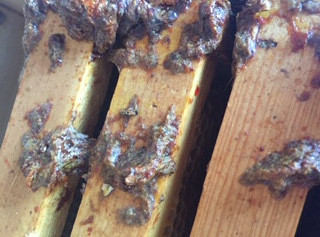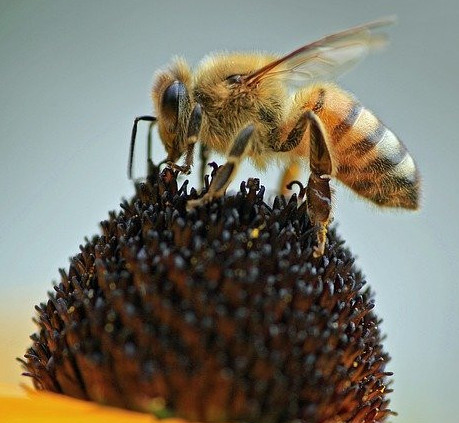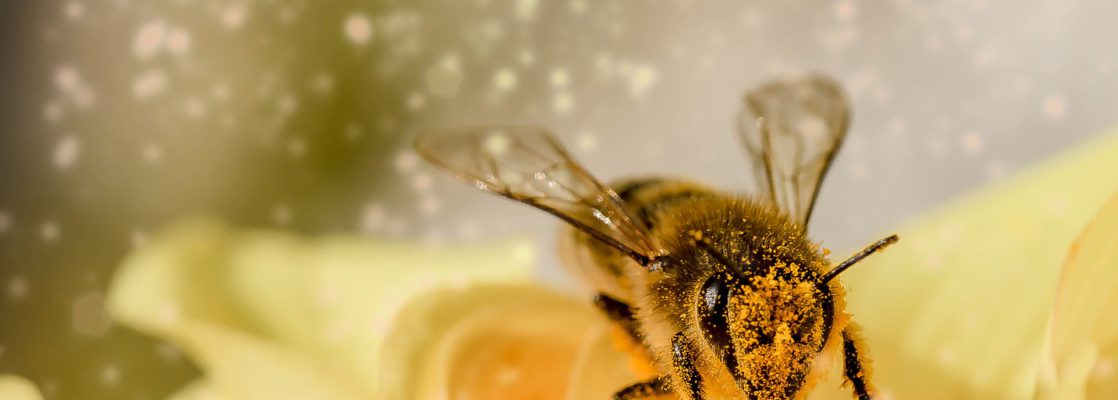 Having been a beekeeper for a few years, I have taken advantage of the many natural benefits that honeybees have to offer. No, I’m not just talking about honey or even the wax they produce. This time, I’m referring to the health benefits of bee propolis.
Having been a beekeeper for a few years, I have taken advantage of the many natural benefits that honeybees have to offer. No, I’m not just talking about honey or even the wax they produce. This time, I’m referring to the health benefits of bee propolis.
It comes as no surprise that there is yet another component that honeybees make.
This one has gobs of naturally helpful compounds and a resource worth mentioning!
What is propolis?
Propolis is this sticky substance that honeybees make. What they do is they take sap or resin from trees such as willow, elm, birch and a few other tree species. They will then mix it with their saliva, wax and pollen to create propolis.
What do honeybees use it for?
Honeybees use propolis to glue everything in their hive together. By doing so, it prevents other bugs and creatures from entering as well as a way to seal up the hive.
Talk to any beekeeper and they will tell you that it can sometimes be impossible to pry apart a hive without their hive tool!
The reason for this is that propolis is so sticky. In the heat of the summer, propolis is really sticky almost like taffy and can be hard to get off of surfaces like your gloves or a hive tool.
If it’s cold outside and propolis has had a chance to cool, it’s really brittle and hard. 
Plus, it looks really gross in its natural form too. Depending on the type of sap/resin they gathered and from which tree, propolis can be reddish or brown looking.
You would think with the way it looks that it would have a real stinky smell to it. But actually, it doesn’t!
When you open a hive, there’s usually a pleasant smell coming from within it. Propolis is no exception.
However, propolis isn’t beeswax. Even though honeybees make wax as well and is found in propolis, it isn’t wax.
Propolis has been around for a while.
Honeybees are not a stranger to us. They have been around for quite some time. So you can imagine how even Egyptians had the opportunity to discover and use propolis to embalm their mummies.
Which comes as no surprise because if a mouse were to get into a beehive, after killing it, they would use propolis to cover it up. If you checked on the same mouse years and years later, it’s practically mummified.
Russian soldiers would use propolis to heal wounds and in some wars was even used to stop the spread of infection. Women have used propolis to fight certain feminine infections. Children were given propolis to aid in illnesses for the first seven years of their lives.
As you can see, it’s has been quite the commodity throughout time. It’s no wonder considering all the benefits it provides.
Propolis has many health benefits
Propolis is considered to be antibacterial, anti fungal, antiviral, anti-inflammatory and antiseptic. 
Here is a list of just a few things’ propolis can help with:
- Ear infections
- Strep throat
- Warts
- Burns
- Allergies
- Reduce cancer cells
- Respiritory infections
- Inflammation
- Cold sores
- Mild gum disease
- Genital herpes
- Ulcers
The list goes on and on. Propolis naturally helps support your immune system and is full of essential vitamins, amino acids and about 300 other compounds.
In a recent study, they found that flavonoids (one of the many natural compounds found in propolis) helps diabetics with the rise of blood sugar as well as assist in the repair of burn tissue.
Another aiding compound is Pinocembrin (say that 5x fast!) that serves as an anti fungal compound and helps heal wounds.
Are there any negative side effects?
There have been a lot of studies revolving around the natural healing effects of propolis but nothing really stating any adverse affects.
However, if someone is allergic to bees, it’s recommended they do not use propolis. If your throat closes up and you exert serious symptoms of an actual allergic reaction, you will most likely have the same problems when you consume propolis.
There are those who say they are allergic when really they were meaning the area where they were stung was swollen and itchy.
It is always advisable if to consult a doctor if you have major concerns or feel that you’d suffer any adverse affects. People who suffer from asthma shouldn’t take propolis and the information in this article shouldn’t be used as medical advice.
Are honeybees the real heroes?
Honeybees are so incredible and fascinating. They make so many things’ on their own that is helpful for us humans. Propolis is just an example!
These small little bugs serve such a huge purpose in our lives. They do so much more than give us delicious honey. They are the great pollinators and give us natural resources to solve so many health issues we all face.
I’m not sure about you, but they may just be the real heroes!
Please feel free to leave your questions in the comment section below!

10 comments on “The Health Benefits of Bee Propolis – And what it is”
Aly
April 25, 2020 at 10:05 pmWow, this is really interesting, as I didn’t realize that this was an element inside a beehive! I have heard of propolis before, but I wasn’t quite sure what it was or where it came from, so it’s helpful to finally know what it is and what purpose it serves… both for the bees / hives and for people when used as a supplement!
Thanks for sharing this helpful information!
Randi
April 26, 2020 at 12:11 amThank you Aly! I’m glad you found it interesting! Honeybees are pretty cool! Thank you for your comment!
Philebur
April 26, 2020 at 12:02 amWow this is interesting. Thanks for this educative review. Bees have been known to offer a lot of health benefits to man although having a bee farm is not as rearing chickens. I have known bees to produce honey but never have I known that their prepolis are also useful. Thanks for the information once again it was really helpful.
Randi
April 26, 2020 at 12:12 amHello! Thank you, I’m thrilled that you found it so interesting! Honeybees are pretty special and do hold a big purpose! Thank you for your comment!
Thank you for your comment!
Andy
April 26, 2020 at 2:54 amI love your writting. Especially the part of (say that word 5 times fast). I had no idea all the uses Propolis provides. However my question is about wax…Can you make a candle out of Bee wax as is, or do you need to add something to it?
Randi
April 26, 2020 at 6:31 pmHello Andy! I’m thrilled that you enjoyed it! To answer your question, Yes you can make the candle out of beeswax as is and not add anything else to it (unless you wanted a scented candle. Thank you for commenting!
Thank you for commenting!
Becky
April 28, 2020 at 2:15 amThese articles are so informative & educational. I’ve learned so much about ? bees. Gotta love the bees. I find myself talking to them when l see them in my garden and on the dandelions in our lawn. Thank you Randi.
Randi
May 4, 2020 at 9:42 pmYou are so welcome! I love it that you talk to them too! That’s awesome!
Mark Johnston
November 13, 2021 at 3:21 amVery nice writing skills! I’m not surprised. Where can we get propolis?
Randi
September 24, 2022 at 8:11 pmHello Mark! If you are not a beekeeper, you can purchase other bee related items from either a local beekeeper or from other avenues. I just posted a review for Biome complete gut health that also has propolis in it.